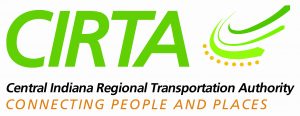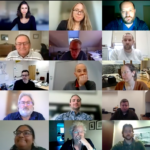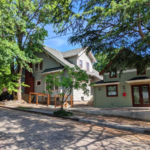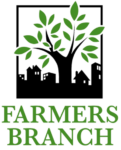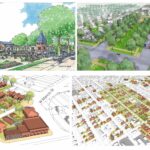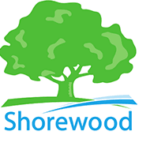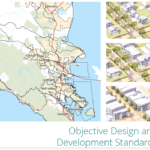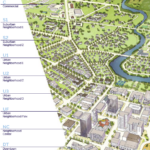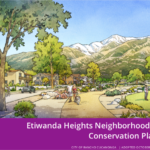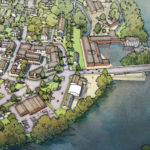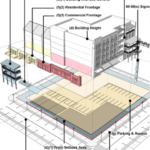FBC 101: The ABCs of Form-Based Codes – Anderson, IN October 7
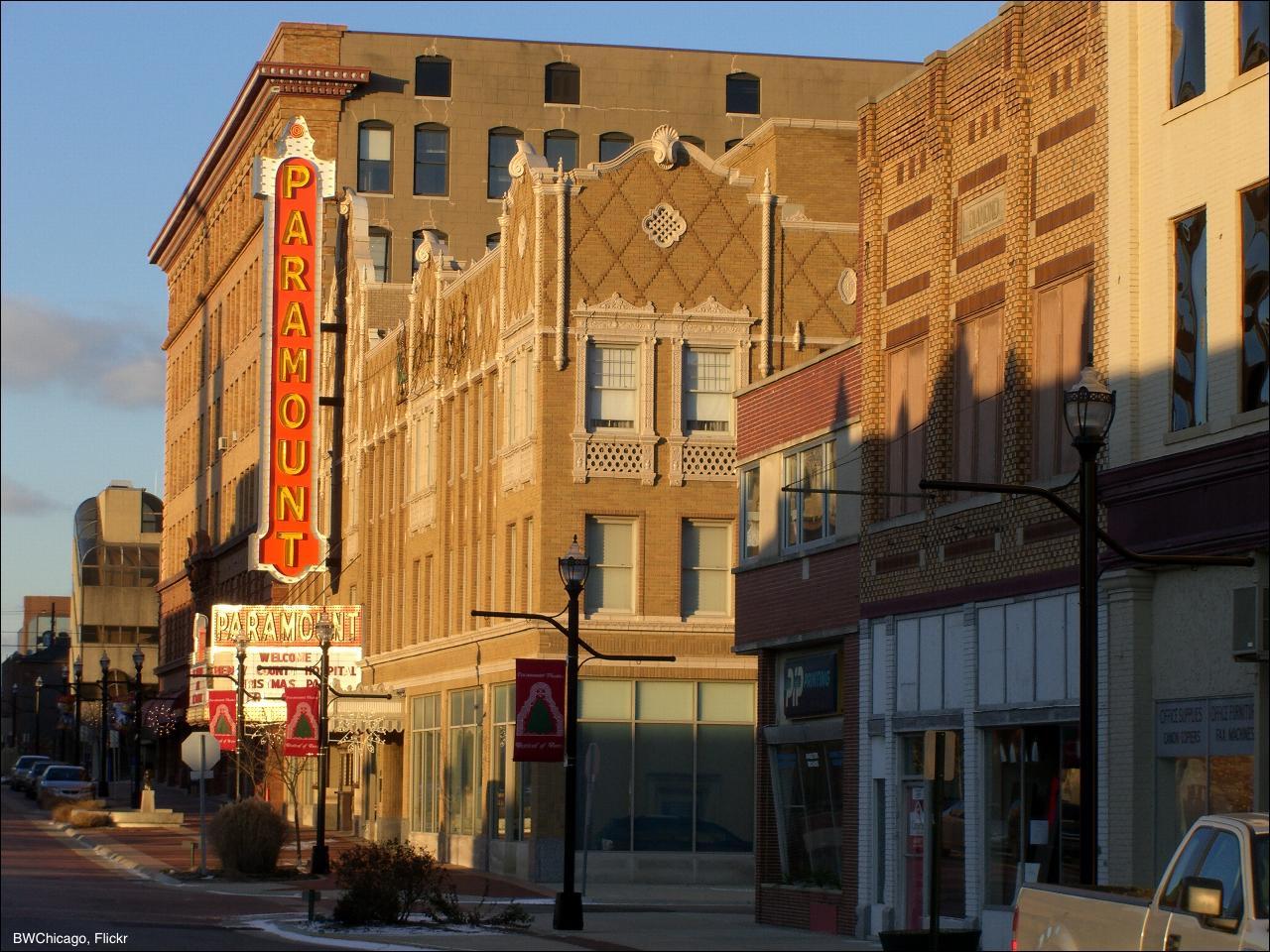
Paramount Theater in downtown Anderson. (Image: BWChicago via Flickr)
Summary
FBC 101: The ABCs of Form-Based Codes
Monday, October 7
Anderson Museum of Fine Art
32 West 10th Street
Anderson, IN 46016
Click HERE for a list of lodging, dining, and parking recommendations.
Eligible for 8 AICP CM
FBC101 is an intensive one-day class, in which participants learn how form-based codes are essentially different from conventional land use regulation and how they have evolved to solve many of the problems created by conventional zoning. The course provides an overview of the process of creating a form-based code, moving from an initial place-based community vision to an adopted code and beyond. Instructors combine lecture and classroom discussion with a hands-on exercise in observing community built form and shaping public space. Participants also learn about common misconceptions about form-based codes and the legal basis for form-based codes. This class is prerequisite for FBC 201 (urban design) and FBC 301 (code implementation). Participants who attend all three courses receive a certificate of completion from FBCI.
Click the tabs above to see agenda and instructors.
Lodging
Click HERE for a full list of lodging and dining recommendations.
2400 E 64th Street
Anderson, IN 46013
2312 Hampton Drive
Anderson, IN 46013
6720 S Scatterfield Road
Anderson, IN 46013
Agenda
The following is a final agenda.
8:30 – 9:00 AM Registration and Light Breakfast
9:00 – 9:15 AM Welcome and Introductions – All Instructors
Instructors will introduce themselves and the Form-Based Codes Institute and provide background on why communities may decide to use form-based codes. Participants will introduce themselves comment on why they are attending the class and what they hope to learn.
9:15 – 10:15 AM Form-Based Code Applications and Principles: A Tool for Shaping Community Form and Character and Smarter Growth — Kaizer Rangwala
This session will focus on the need for zoning reform and introduce form-based codes as the new paradigm for land-use regulation. Instructors will provide an overview on the fundamentals of form-based codes, which put form first and regulate use second, based on the principle that community vision and character shape the code rather than development being shaped by rules that have no design intent.
10:15 – 11:00 AM Common Misunderstandings of Form-Based Codes — Keith Covington
In this session, the instructors will address common misunderstandings about form-based coding and how to address them. Topics will include: complexity and flexibility in form-based codes, the role of consultants in drafting a code, regulation of uses in an FBC, guidelines versus regulations, the potential for displacement, and the degree to which architecture and design can be regulated under an FBC.
11:00 – 11:15 AM Break
11:15 AM – 12:00 PM Legal Aspects of Form-Based Code — Matt Lawlor
A broad understanding of applicable law is essential when adopting a form-based code. This session will provide an overview of some of the general principles for regulatory amendments; review some important considerations for the process of adopting a code; and present ideas for how to minimize the potential for legal challenges.
12:00 – 12:45 PM Lunch Provided by MCCOG
12:45 – 1:30 PM Regional Examples of Form-Based Codes — Keith Covington
Form-based codes have gained positive momentum in the Midwest as a legitimate alternative to conventional zoning. Case studies of form-based codes in Carmel, IN; Peoria, IL; and Nashville, TN will be shared and discussed.
1:30 – 3:15 PM Documentation Exercise: Learning How to Look — All Instructors
In this exercise, participants will learn the role of quality built places in defining the DNA for vision plans and form-based codes. Participants will observe, document, and discuss different contexts and levels of urbanism via an instructor-led walking tour in Anderson. This documentation of elements such as streets, frontages, setbacks/build-to lines, and building forms become the foundation of a form-based code.
3:15 – 3:30 PM Break
3:30 – 4:15 PM Getting Ready for a Form-Based Code — Kaizer Rangwala
Form-based codes are a new concept for many communities and local planners often need to build understanding and support before drafting and adopting a new code. This session will provide specific steps local planners have taken to prepare citizens, political leaders and their own staff for the transition to a form- based code. Instructors will also discuss the administrative advantages and explain how form-based codes can re-democratize the building of towns and cities. This session will conclude with a summary of technical resources that are available to communities wishing to embark on a form-based code.
4:15 – 4:45 PM Lessons Learned and Q&A – All Instructors
4:45 PM Adjourn
Instructors
FBCI draws upon national experts, including urban designers and planners with broad experience in all aspects of form-based coding.

 Kaizer Rangwala is the founding principal of Rangwala Associates, a town-planning firm that practices the principles of smart growth and walkable urbanism. Kaizer’s training and experience as an architect, city planner, and economic developer, coupled with his international interests, allows him to bring broad and distinctive perspective to place making. He has over 20 years of public sector experience, while his work on Form-Based Codes has been recognized with numerous awards. He has lectured extensively on smart growth, new urbanism, form-based codes, and regulatory reform at planning conferences, planning schools, and at the Form-Based Codes Institute, where he currently serves as the organization’s chairman. His writings have been featured in numerous architecture, urban design, planning, and economic development publications.
Kaizer Rangwala is the founding principal of Rangwala Associates, a town-planning firm that practices the principles of smart growth and walkable urbanism. Kaizer’s training and experience as an architect, city planner, and economic developer, coupled with his international interests, allows him to bring broad and distinctive perspective to place making. He has over 20 years of public sector experience, while his work on Form-Based Codes has been recognized with numerous awards. He has lectured extensively on smart growth, new urbanism, form-based codes, and regulatory reform at planning conferences, planning schools, and at the Form-Based Codes Institute, where he currently serves as the organization’s chairman. His writings have been featured in numerous architecture, urban design, planning, and economic development publications.Registration Fees
MCCOG Members: $20 — Please insert discount code at check out
Public Sector: $275
Private Sector: $325
We accept Visa, MasterCard, and Discover.
Online registration has now closed. Day-Of registration will be available beginning at 8:30 AM Monday.
Thank you to our sponsors:


